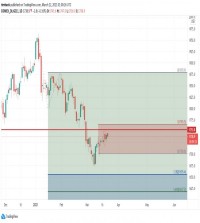|
By: Bailey McCann, Private Equity Strategies As a public-private partnership administered by the U.S. Small Business Administration (SBA), the Small Business Investment Company (SBIC) program has provided more than $58bn in funding to more than 100,000 small businesses in the U.S. SBICs have also become an attractive investment vehicle for today’s private equity and alternative capital providers. Now, Congress is calling on trade groups and industry professionals to suggest ways that the program can be improved. At the end of July, the House Small Business Subcommittee on Investigations, Oversight, and Regulations, held a hearing to gather suggestions on the program, which currently has bipartisan and bicameral support. Steven Brown, Managing Partner of Trinity Capital Fund II of Phoenix, Arizona, testified before the Subcommittee that recent SBIC reforms have attracted more private sector investment and allowed SBICs to operate closer to the speed of business to back thousands of successful entrepreneurs. “Trinity Capital is an example of how an SBIC Fund can provide critical capital to businesses that will now continue to grow long after the SBIC has exited the investment.” The Small Business Investor Alliance (SBIA) also testified in the hearing and offered a number of suggestions including maintaining high licensing standards, modernizing SBA information technology systems; addressing drafting errors in Dodd-Frank; and modernizing the program’s Standard Operating Procedures. “The areas that need to be improved the committee largely agreed with, there is broad consensus that small businesses are struggling to access capital,” says SBIA President Brett Palmer in an interview with Private Equity Strategies. “We’re looking to raise the limits businesses can take out, that’s been introduced in both houses, and has been marked up in the Senate, so we hope that will move forward when Congress reconvenes.” The program itself is capped at $3bn per year, at the hearing SBIA pushed for that cap to be increased to $4bn. “There is market demand to scale up the program and we want to keep that going,” he says. SBIA is also working with business development companies (BDCs) and congress to get regulatory and legislative relief for raising and providing capital to the lower middle market. This segment of the business landscape has been hardest hit by tightening liquidity in the capital markets. Palmer notes that there may also be a growing opportunity set for larger BDCs and private equity firms in the lower middle market as demand for all types of credit and capital continues to rise. “As community banks get squeezed out through regulation, there is, really a great opportunity for private equity in lower middle market because the demand isn’t going to go down.” Regulation changes SBICs also need to keep an eye on regulation Palmer says. Failure to engage earlier on has resulted in provisions in Dodd-Frank and at the Consumer Financial Protection Bureau that are less than ideal for small businesses. “If people don’t engage and learn Washington they can get hurt in ways they never expected,” he says. Indeed some new changes are on the horizon for September 1 of this year. The Small Business Administration (SBA) has changed how procedures to prepay pooled debentures will work. Until now, SBICs have had the option of prepaying pooled debentures either by ACH debit with funds collected from the SBIC’s designated bank account, or by wire transfer directly to the Bank of New York Mellon. Under the new terms notice of prepayment must be given five days in advance. Additionally, principal payments may no longer be made through ACH debit, only semi-annual interest payments can be handled by ACH. Further changes may be on tap when Congress resumes later this year. Wisconsin Senator Tammy Baldwin is working on a measure that would expand the cap to $4bn and may also include additional provisions to encourage startups. The Senator says the measure would be paid for already through fees paid into the SBA.
| |
|
This article was published in Opalesque's Private Equity Strategies our monthly research update on the global private equity landscape including all sectors and market caps.
|
Private Equity Strategies
SBICs See Continued Support From Congress |
|





 RSS
RSS











